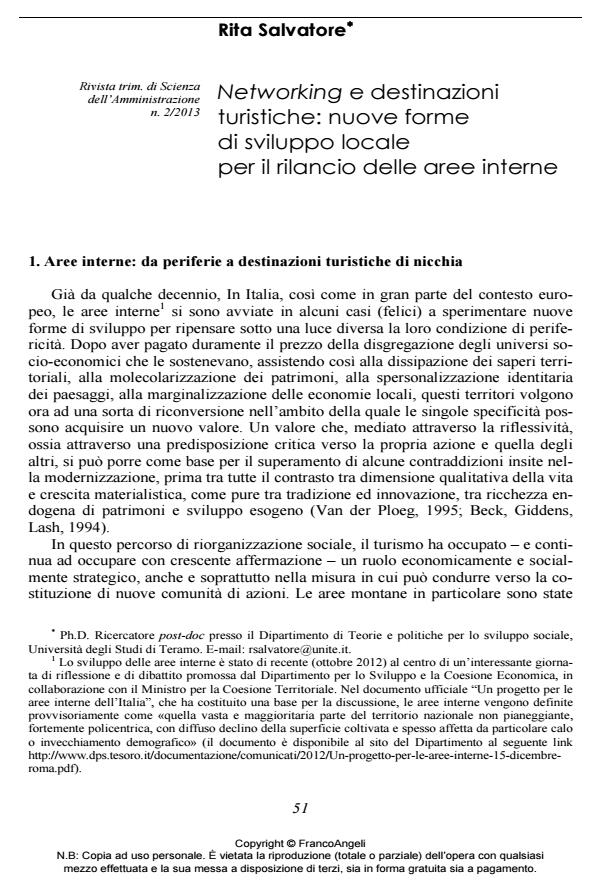Networking and tourist destinations: new development strategies within rural restructuring
Journal title RIVISTA TRIMESTRALE DI SCIENZA DELL’AMMINISTRAZIONE
Author/s Rita Salvatore
Publishing Year 2013 Issue 2013/2
Language Italian Pages 11 P. 51-61 File size 420 KB
DOI 10.3280/SA2013-002004
DOI is like a bar code for intellectual property: to have more infomation
click here
Below, you can see the article first page
If you want to buy this article in PDF format, you can do it, following the instructions to buy download credits

FrancoAngeli is member of Publishers International Linking Association, Inc (PILA), a not-for-profit association which run the CrossRef service enabling links to and from online scholarly content.
In this paper the author analyses the role of sustainable tourism within the recent restructuring of rural economic systems. Some critical situations embedded in rural spaces are taken into account, especially in terms of social agency. In particular, some of the reasons why new strategies of regional economies are hard to be triggered are assessed. A paradigm based upon networking actions and capitalization of local resources (both material and immaterial ones) may become a useful means to overcome some of the contradictions that old developmental models have disclosed, such as the option endogenous versus exogenous, the contrast between quality of life and materialistic growth, the tradition/innovation antithesis, the continuity/change contraposition. The peculiarity of the local micro entrepreneurship, based on a socio-cultural identity oriented management, represents one of the key-points of the reasoning.
Keywords: Networking, rural space, local identity
- Computational Science and Its Applications – ICCSA 2018 Silvia Battino, Ginevra Balletto, Giuseppe Borruso, Carlo Donato, pp.44 (ISBN:978-3-319-95173-7)
Rita Salvatore, Networking e destinazioni turistiche: nuove forme di sviluppo locale per il rilancio delle aree interne in "RIVISTA TRIMESTRALE DI SCIENZA DELL’AMMINISTRAZIONE" 2/2013, pp 51-61, DOI: 10.3280/SA2013-002004